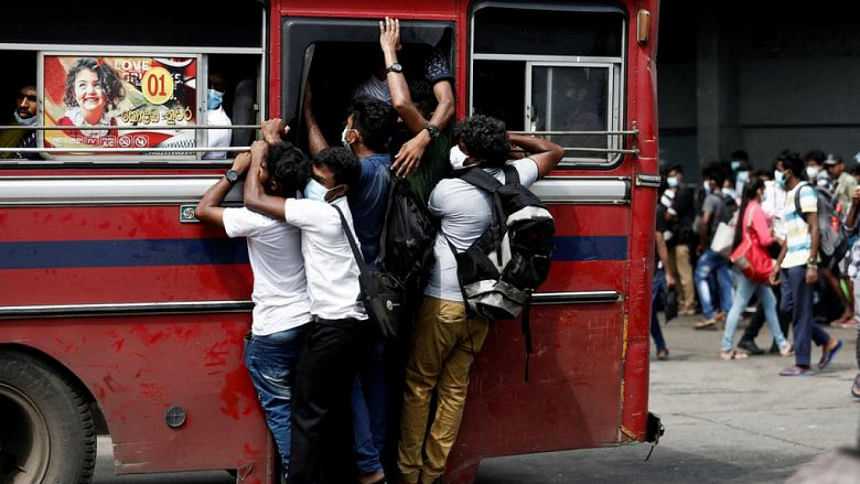Is education on the list of priorities for Sri Lanka now?

With no food on the table, few hours of electricity a day, curfews and social media bans, lack of medicine and other necessary commodities while the money continues to lose its value, what exactly is the future of education in Sri Lanka right now?
Sri Lanka sprang up on everyone's social media feeds when news broke out that the country did not have enough money to import paper and ink for millions of its students.
Years of government mismanagement and corruption, compounded by poor policymaking, an unforeseen terrorist attack, and the pandemic have led to this tragedy where the poorest are predicted to soon face starvation. People are struggling to get the basics required to survive. There's an endless list of issues to address right now and the numbers affected are increasing. The country will take time to recover but, just like in every conflict, the most vulnerable and significant section of the population – its young citizens – are the hardest hit.
The simple reality is that when basic human needs such as hunger, sleep, and medicine become difficult to obtain, anger grows in every member of a community and suddenly, sending children to schools becomes the last thing on the priority list.
Although Sri Lanka has one of the highest literacy rates in all of South Asia, circumstances have led education to be one of the most impacted sectors in the country right now. University students are on the streets protesting.
Amidst the crisis, the government has slashed funding for school meals, leaving millions of school children hungry. With almost half of the population living in poverty before this situation, they needed school meals to meet their daily nutritional needs. As a result, millions are predicted to stop going to school or even drop out now. The better majority of 28,000 overseas Sri Lankan students are struggling to even pay for their education due to lack of funds originating from their parents in Sri Lanka.
The mentality of the general populace to try to leave for overseas education and stop attending school in the country is increasing, just as in any conflict. Thousands of schools closed on May 6 as workers went to strike demanding for the government to step down.
Academics are being criticised for not stepping up, due to having a greater obligation in politics as their choices influence others and are being accused of intellectual dishonesty, for turning a blind eye to prior events that led up to here.
Principals who wanted to recall students and teachers back to classrooms to reap the "real" benefits of education have also had their tunnel vision of education questioned. This narrow outlook of learning within the four walls of a "school" while a grim reality that endangers human lives has been severely looked down upon. This perspective itself has been blamed to cause this catastrophe that exists today, producing so-called professionals who fit into the draconian concepts of today's world order seeking the gain of the few over the many.
Demonstrations are sure to get more intense as a lot of realities exist right now after the previous Prime Minister resigned. The importance of the contribution of youth in building a new ironclad framework for a shift in national policy and the political sphere of the country is obvious. Normalcy is not expected to return soon with the country being in a war-like condition. And hence, the ordinary flow of education is far from a priority in the country's current socio-economic condition.
A virtuoso of procrastination by day and a discursive perfectionist by night, Eahsan is unsure if his experiences generated his personality or is it the other way around. Send him help at [email protected]

 For all latest news, follow The Daily Star's Google News channel.
For all latest news, follow The Daily Star's Google News channel. 



Comments